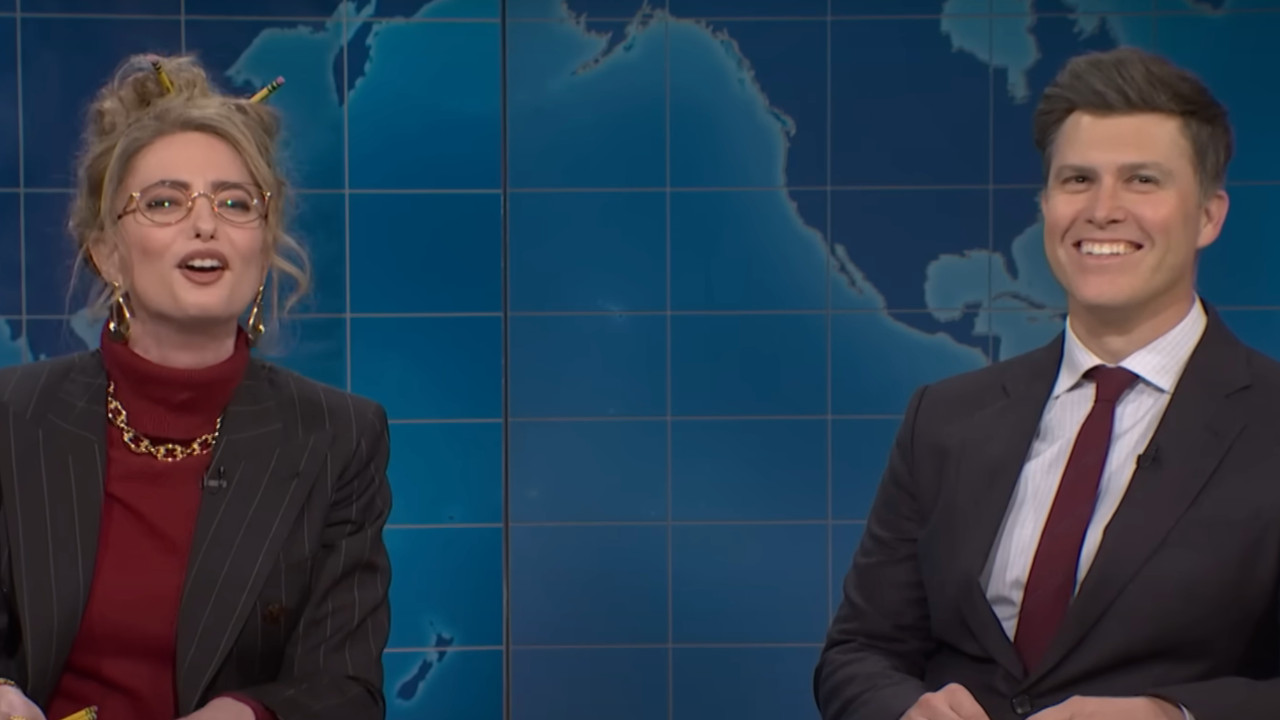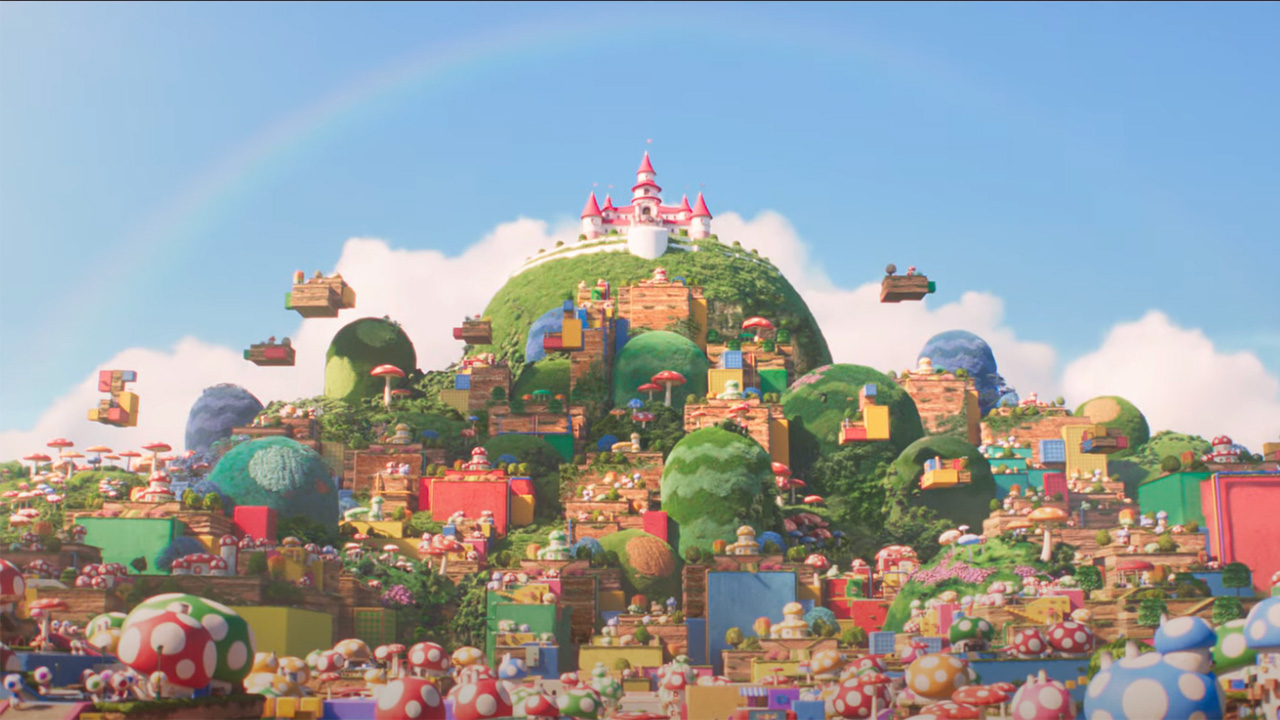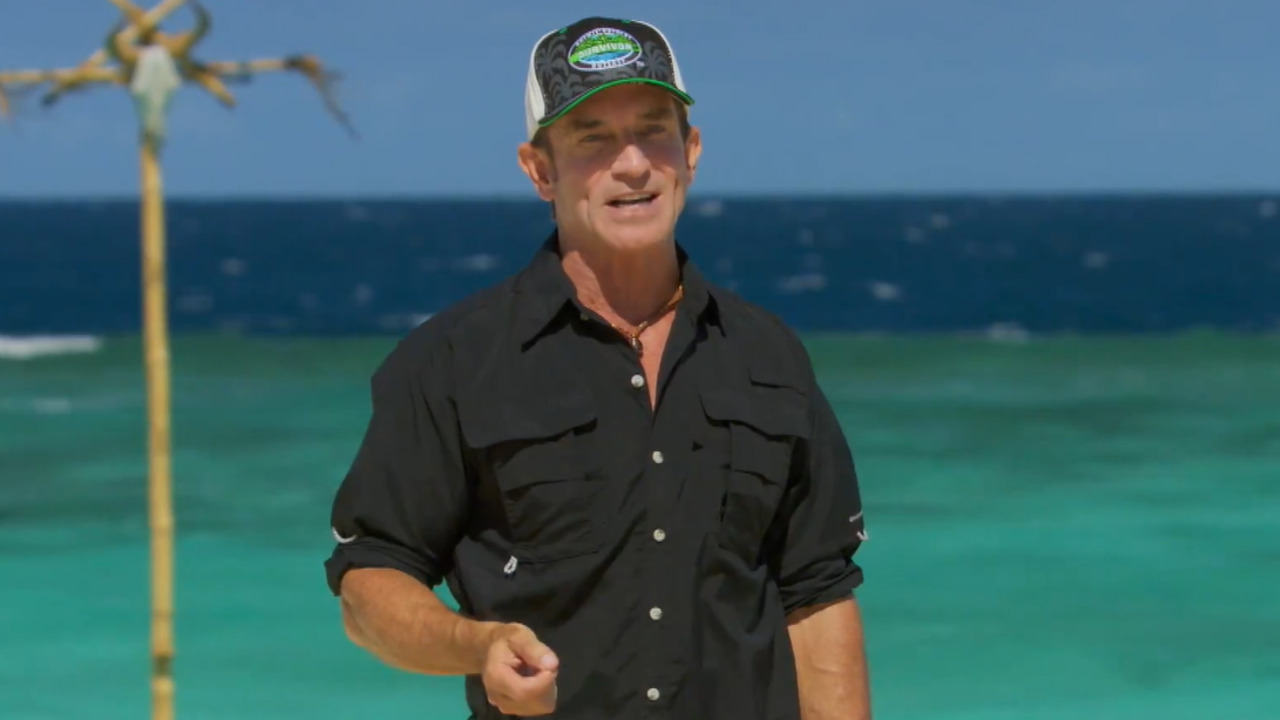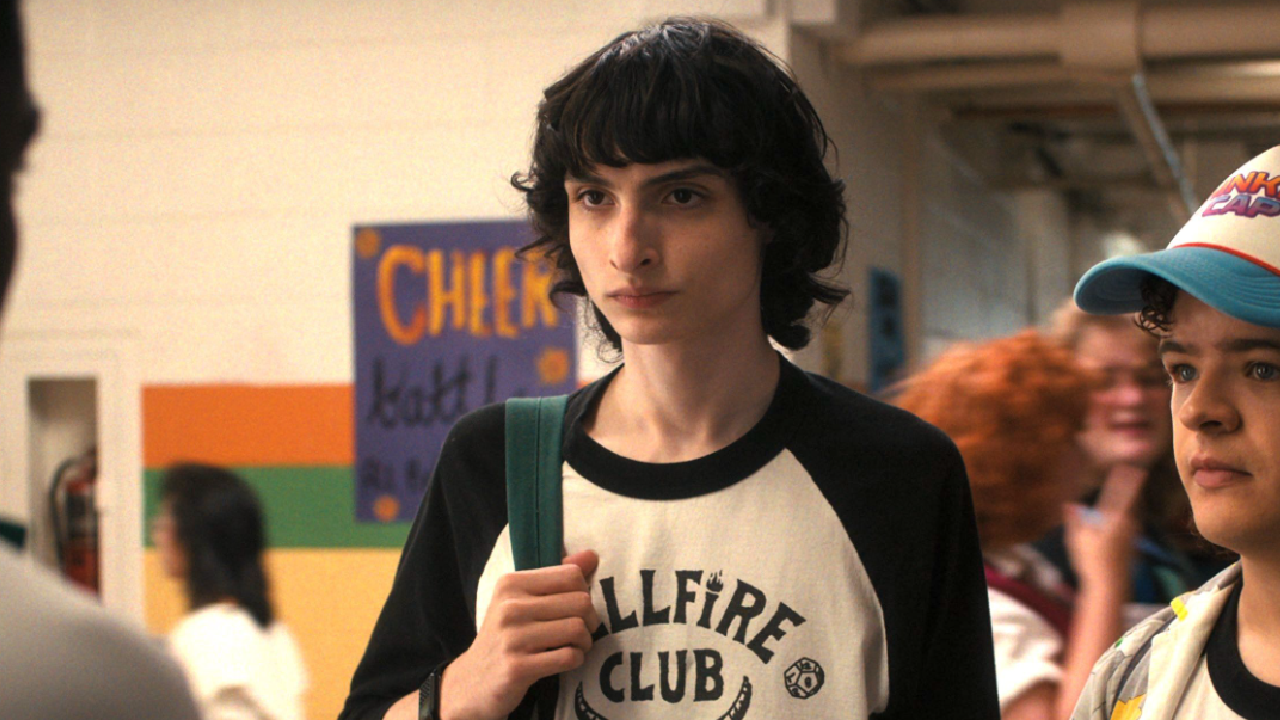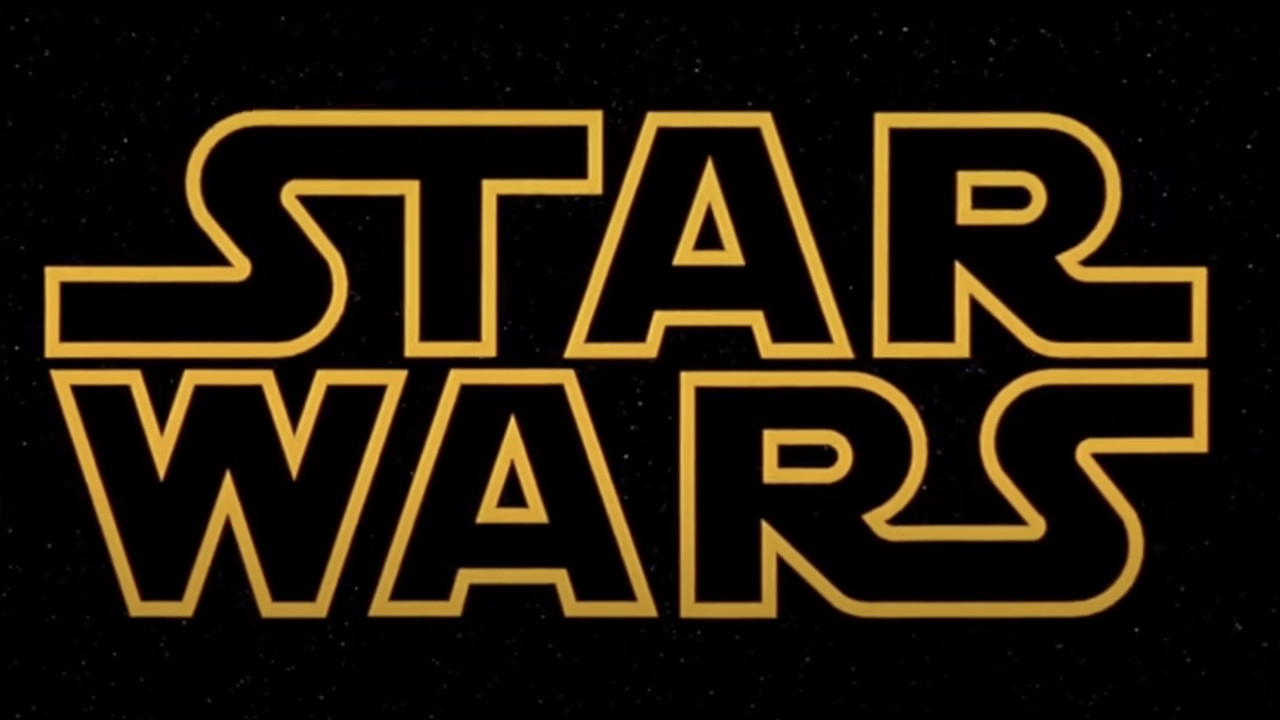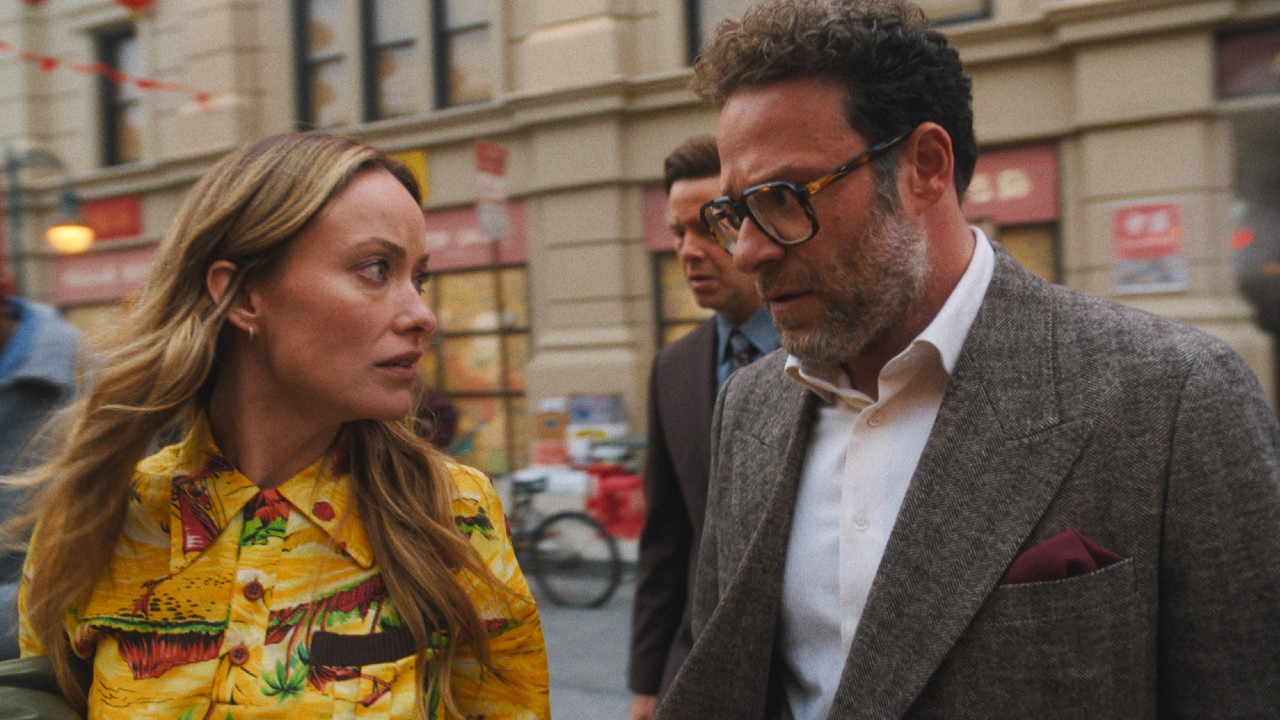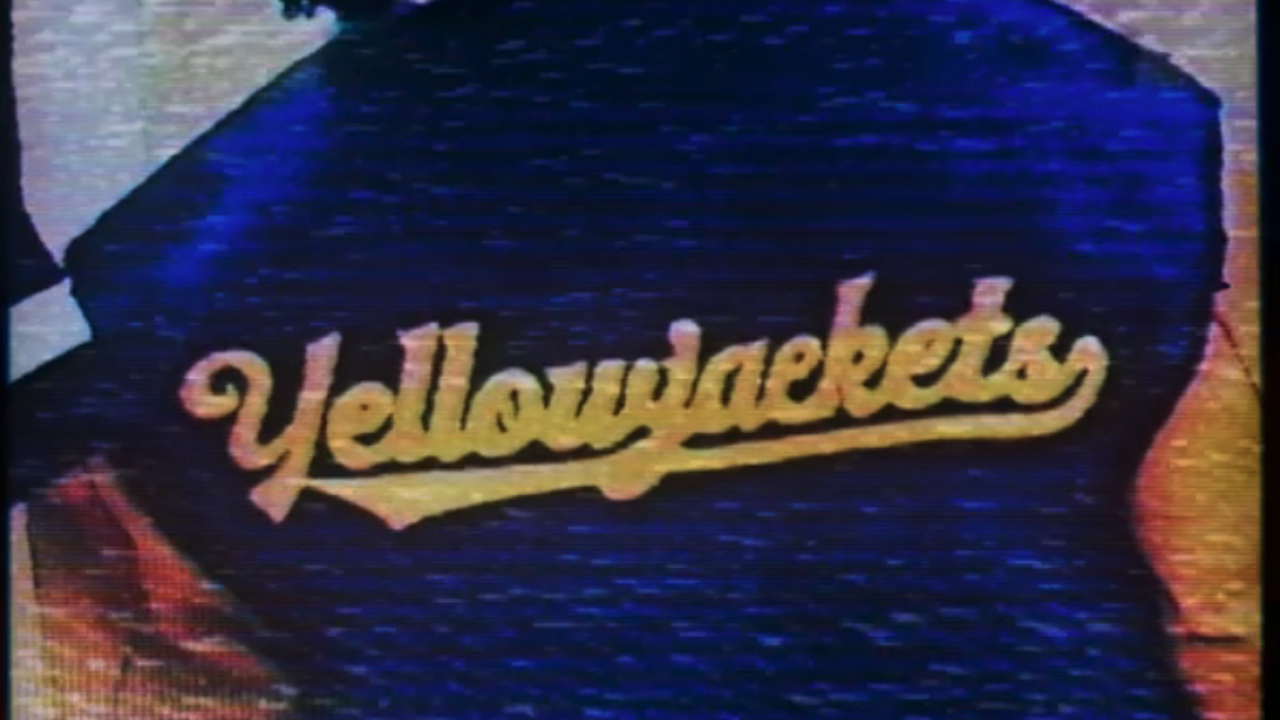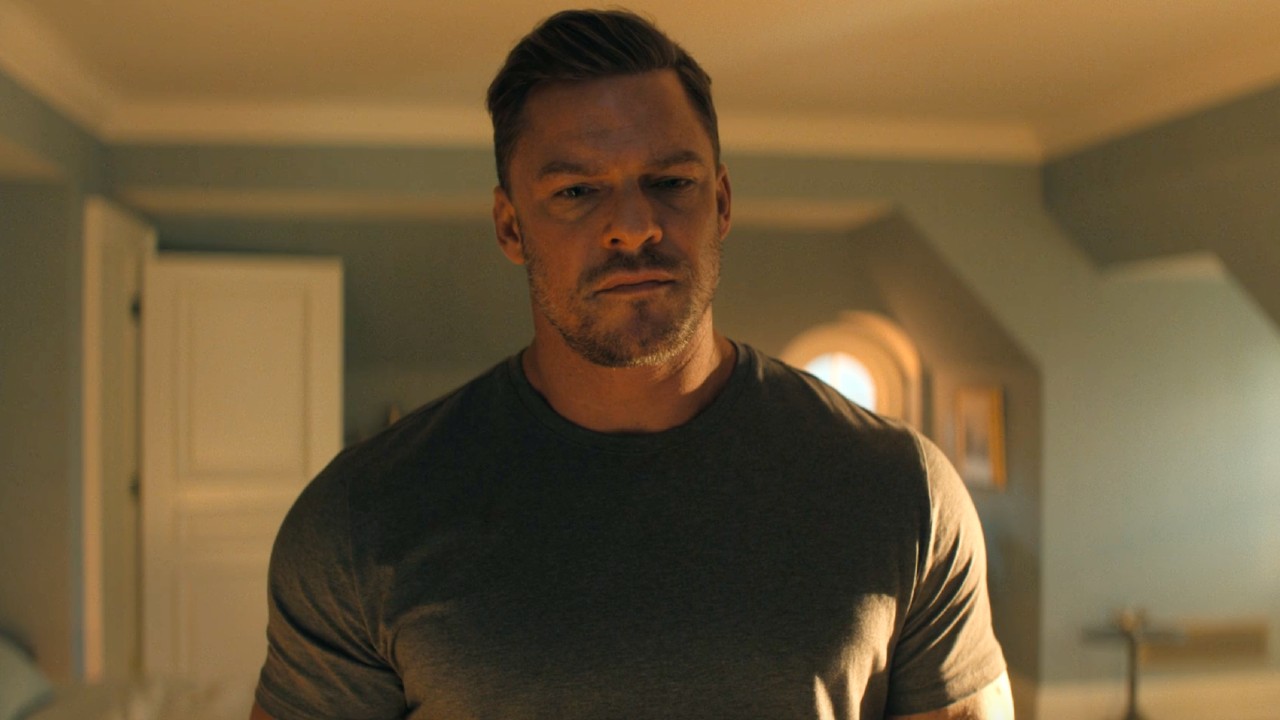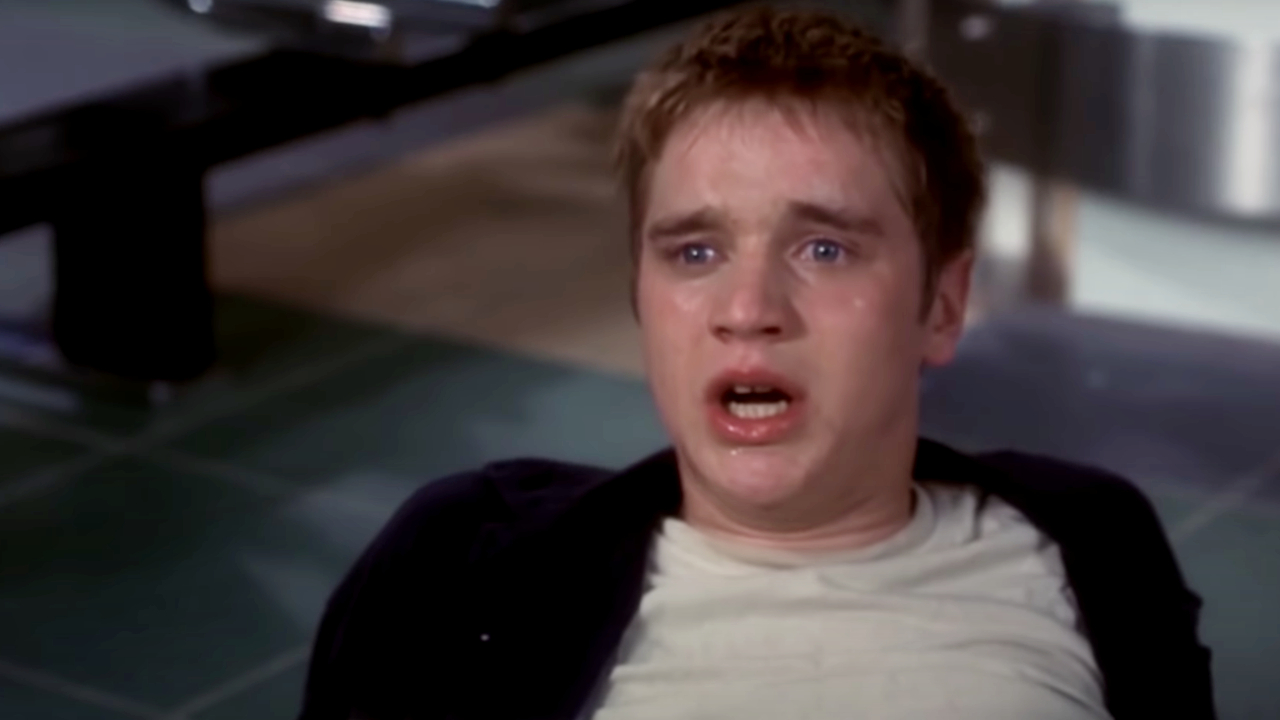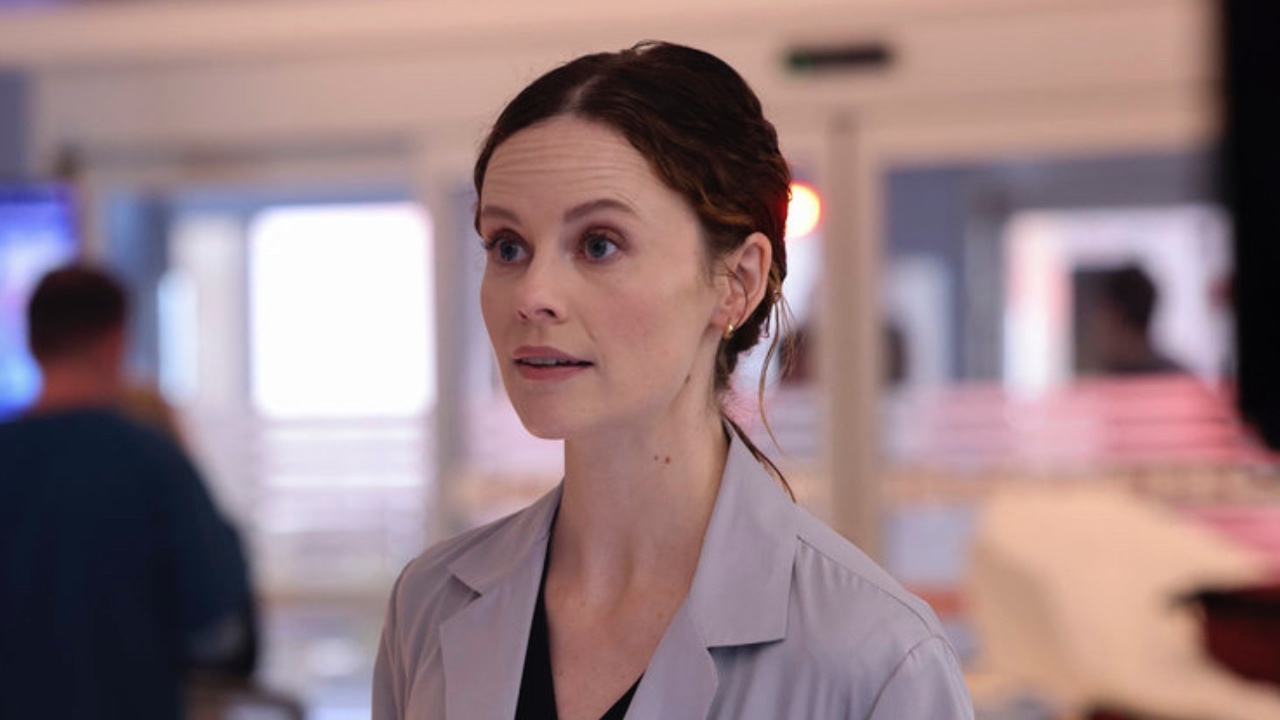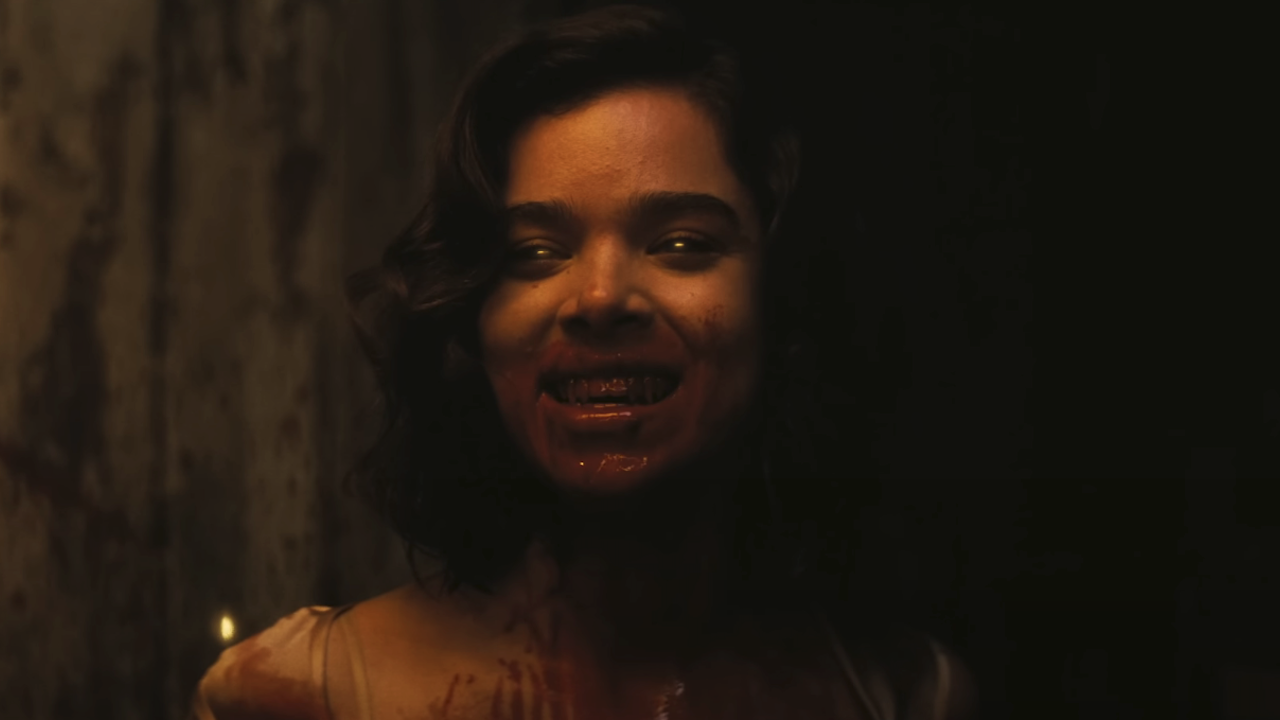Interview: George A. Romero On Diary Of The Dead
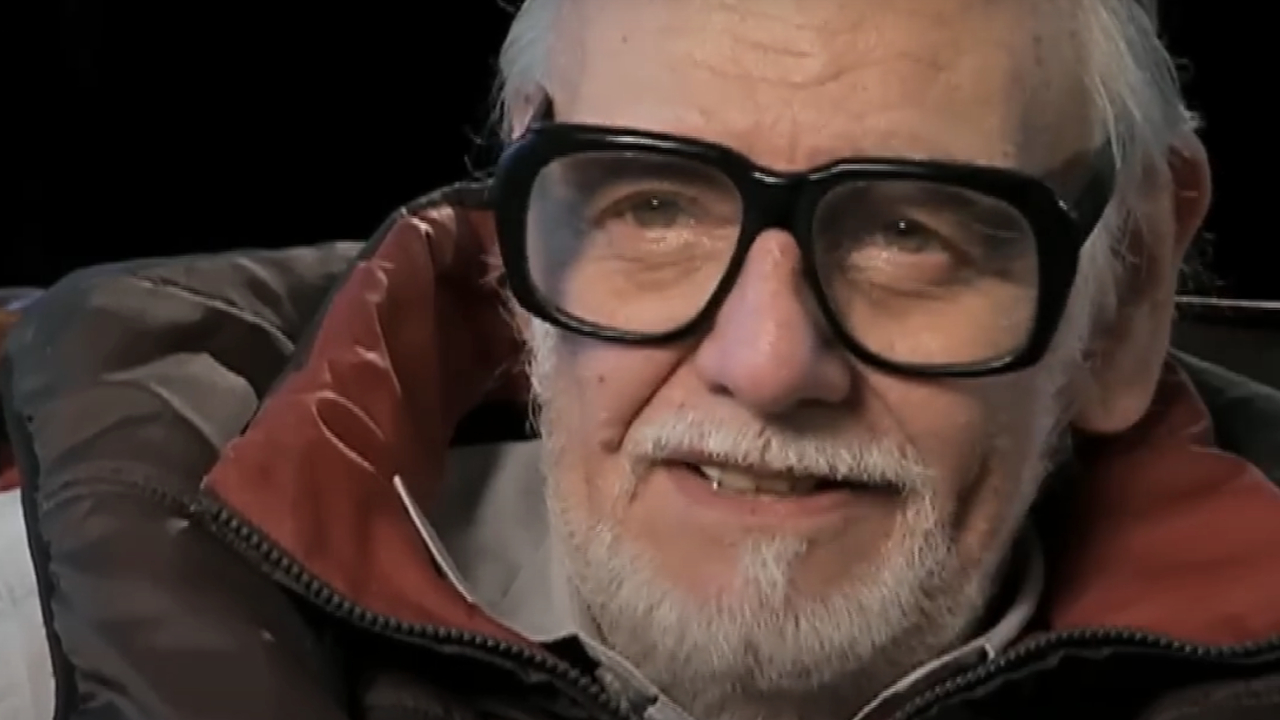
When I saw George A. Romero’s original Night of the Living Dead in film school, I thought it was all right. It certainly wasn’t the gore-fest it was made out to be and while heavily fraught with late 60’s politicking, the film looked like something I could have made. Well, 20-year-old me was an obvious dumb ass because Night of the Living Dead’s home-movie quality is exactly what makes it so brilliant. Diary of the Dead, Romero’s latest date with the night, is a true return to those guerilla roots after 2005’s expensive, studio-produced Land of the Dead. Social satire with zombies mixed in? Hell yes!
Romero, a 6-foot tall bona-fide hippie man in Scooby-Doo glasses, was unassuming and hilarious during an interview with a group of L.A. journalists. After spending half an hour sharing opinions on the age of the Internet, telling funny anecdotes about making horror films, and explicating the true meaning of all those zombies, Romero graciously assented to signing the hordes of DVDs that the buttoned up L.A. journalists sprung on him immediately after the interview ended. It’s official: I’m a fan. And so, apparently, is everybody else in this town.
Can you talk a little about the genesis for this project?
I made a film just a few years ago called Land of the Dead. It was the fourth zombie film that I made. I was pretty satisfied with it. I know that some of my fans were not, but when I looked at it, it seemed so big. It was Thunderdomeand I didn’t know where to go from there. At the same time, actually before we shot Land of the Dead, I had this idea that I wanted to do something about emerging media. I thought, well that’s a way to get back and do something really inexpensive and simple and see if I still have the chops and the stamina to go make and make another little guerilla movie and relate back to the origins of the thing. I had this idea that I could use film students out shooting a school project and zombies begin to walk and they document it. I wanted to do this subjective camera thing before I knew anybody else was working on it. I didn’t know about Cloverfield or anything else. I thought we were going to be the first guys out there with one of these.
How carefully did you have to construct the cinema verité elements into the story?
It wasn’t so much constructing the story as it was constructing the shots. People have said, “Boy it must be nice to just be able to turn the camera on and shoot.” It was hell, man! We were shooting 360 around the room. We were doing 8 page shots. It really needed to be choreographed down to the shoelaces. It was really, really tough. The DP did a great job making it seem very off-handed but it wasn’t at all. It required more discipline than anything in Land of Dead or anything else I’ve ever done.
Why did you decide to use a DP and construct the shots rather than go Blair Witch Project style and just hand the camera to the actors and have it look like actual kids are actually shooting it?
CINEMABLEND NEWSLETTER
Your Daily Blend of Entertainment News
First of all, they don’t shoot that good. I wanted it to be theatrical. The one thing about this film is that it sort of walks that line. Maybe unsuccessfully, it might be a little too arch and a little too theatrical, but I didn’t want it to be Blair Witch Project. Blair Witch was dizzying to me and it didn’t quite make sense. So I wanted to explain a little more and I wanted it to have some traditional elements, some gothic elements in it, which requires a bit more staging and carefully constructed, not only plot elements, but production elements. I guess that’s also one of things that is really is disappointing to me, that a lot of films these days leave those values out. I went to go see Atonement and I expected to need a tissue and it didn’t happen. That same week Turner Classic Movies showed Brief Encounters [Close Encounters of the Third Kind] and you laugh at the style, you laugh at the techniques and everything else for 90 minutes and then at the end of the film there’s a tear in your eye. I find that films are hollow that way today, people are afraid of that. We were trying to walk that line and put some of that in but at the same time make it feel free and easy.
At the end of this film, you leave it with your heroine surviving and finishing the movie. So are you developing another film in the series?
This ending had nothing to with that. In Night of the Living Dead, everybody died. When I set out to make Dawn of the Dead, in my original script everybody died. I said, I got to make a sequel here; it’s got to be the same. I decided sort of halfway through the shoot on that film that I could leave the world upset. I don’t have to restore order in the world but I can save a couple of these characters. And so I’ve always done that: Dawn, Day, Land, and now this film. It’s always there and everybody always says it’s wide open for a sequel.. The reason isn’t to make a sequel; it’s just that I wanted to save a couple of those people that I liked!
You’re so identified with the zombie movie now. Are you happy about that or are does it sort of haunt you at times?
Of course it haunts you! I’d love to be able to go in and pitch another kind of film and be taken seriously, but I’m generally not taken seriously. So that’s a bit frustrating because you don’t grow up wanting to be a horror filmmaker, you grow up wanting to be a filmmaker. I wish that I had a wider range. I tried early on to do several films that were non-genre and 9 people saw them, so I don’t have the credentials in that regard. On the other side of that coin, and far outweighing it, is the fact that I’ve been able to use genre of Fantasy/Horror and express my opinion, talk a little about society, do a little bit of satire and that’s been great, man. A lot of people don’t have that platform. I joke and say maybe I’m the Michael Moore of horror but it’s wonderful to have that ability. It’s sort of my niche.
How it difficult is it to reach that balance between social commentary and just “the zombies kills everyone”?
I don’t think it’s difficult. I think you just have to set out to do it. [For] all of these films, the ideas for them have come from the world. And once you know, okay, I’m going to make a movie about this you can glue zombies on it, easily. So it’s not difficult at all. You just have to have that idea. I think a lot of people don’t. I go to conventions and universities and talk to young filmmakers and everybody’s making a zombie movie! It’s because it’s easy to get the neighbors to come out, put some ketchup on them. You don’t need a rubber suit or a monster effect. But there doesn’t seem to be a lot of substance behind most of it. It’s just splatter, you know? I think you have to go deeper. I always tell these young filmmakers, “Get an idea.” Forget the story. And everyone mistakes idea for story. If I’m pitching something out here to an executive they always want to know what the story is. The story? I could give 50 stories! Okay, the guy’s black. Maybe not, maybe he’s white! Maybe it’s a woman, ba-da-boom. You could do it 50 different ways but it has to be about something.
Can you talk about how, because the dead have to be hit in the head somehow for them to die, you have perfected the head injury?
I had one early on in life!
You never make it redundant thought, so how do you come up with all these different ways to kill them?
It’s all ideas that come to you in the shower. I don’t know what else to say about it, but that is the challenge every time you set out to do one of these. How am I going to kill these guys, how am I going to get rid of that brain? Anybody with ideas, please write them down! If I have to do another film, I don’t know, man, I’m sort of running out of stuff.
What about Diamond Dead?
Diamond Dead! I would love to make that movie. I loved the old script. It was an Australian producer and we had Ridley Scott behind it. It looked like it was really going to happen and nobody got it. We pitched it with Ridley and everybody said, “What is this?” It’s like Phantom of the Paradise, if you remember that movie, which I loved. Diamond Dead is about a dead rock band. Nobody got it so it sort of blew away. Right before I came out here on this trip, I got a call from this guy who said, “We have a new script and I’d really like you to read it.” I haven’t read it yet. He said he would e-mail it to me but I’m not home right now. Maybe it’ll come back, I don’t know. You never know, man. I can’t tell you, there’s so much shit that goes out on the Internet.
Do you ever see yourself returning to comic books like you did with Toe Tags?
Well I’d love to write another comic book. I told those guys [DC Comics] to call me up and I’ll do it again. I was actually hoping that that Toe Tags would turn into a movie but it was just too big. I had cities in devastation. This guy with a pet elephant, you know? Not the kind of shit you can do very easily on film. But I loved doing it. I’d love to do another one. I actually have a couple ideas, I sent them into [Bob] Shreck – this guy’s name is Shreck- and just ain’t been invited yet.
There’s been a couple of take-offs and homages to your work like Shaun of the Dead and 30 Days of Night. Were there any of those that you thought were particularly well done?
I just flipped for Shaun. It was funny because when it was going to get North American distribution I was living in Florida, on this little island called Sanibel with one little theater where the projector had a 40-watt bulb. So I get this message from these guys and I didn’t know who they were. Some cat named Edgar Wright: “I made this movie, I hope you like it.” So next thing I know some cat from Universal shows up like a guy with a bomb suitcase, the fucking print is chained to him. He starts saying, “We want to show you this movie at the local theater. We arranged it.” So this funky little drunkard comes down to open up the theater doors and turn on the projector. I see this movie a little too dark but it was hilarious, man! And I flipped for it. It came with their phone numbers and I called them up immediately. They just said, “Oh we just wanted to know that you weren’t going to slap us down.” And I said, “How could anybody slap you down for this?” It was just so loving. We’re still buddies. They both came out to be zombies in Land, both Edgar and Simon [Pegg]. Simon does a voice in Diary of the Dead, he does once of those voice tracks. We’re still good buds. I’m happy to know them; they are the cleverest, really. They’re really cool. They could be the new Monty Python: They could take over. I don’t think that’s what they’re shooting for though.
You thank Simon in the special thanks and a couple of other people. Wes Craven, etc.
They all did voice tracks. What happened with this film is that we shot the principle action, we shot the scripted action, and basically said, “If we can get this shit in the can, then we have the movie,” and one of the kids was going to finish the movie and make it presentable. So we shot the principle action and then worried about all that other stuff: The narration, the news footage, the stock footage, the newscasts. This is the result of being able to have a kind of freedom. I was just able to go back, screw around with it with my producer, with the editor. We would record right into the Avid a million different little tracks and sound bites. So in the end we picked some of these things and we had a soundtrack except it was all us, it was all me and Peter [Grunwald] and Michael [Doherty]! And we said we got to get some other voices, this sounds funky, man. So I said we should just call up some of our buds. The first guy I called up was Steve King. I sent him an email of the script and he read it over the phone. We were able to do them all over the phone because they’re all distorted anyway, they’re all on the radio, they didn’t have to have any fidelity. He said okay and he did the script. Then he said, but I wrote this other thing, do you want me to read it? I said, sure man. Then he just rattled out the thing that we actually used which of course was a hell of a lot funnier than what we had sent to him. Guillermo Del Toro did the same thing. I wound up just calling these old buddies up and saying, would you do this voice? And everybody said yeah. So all those special thanks: Tarantino, Simon Pegg, West Craven. That’s it. They all did those news voices. It was great because these are guys that I’ve known and it was great that they came out and lent their support.
In the film you never actually use the word “zombie”.
The characters don’t know that they’re zombies.
Is Diary of the Dead set in a world where the common lore of the zombie as we know it does not exist? They’ve never seen a zombie film?
They haven’t. When I did the first film, I didn’t call them zombies. When I did Night of the Living Dead I called them ghouls, flesh eaters. To me back then, zombies were just those boys in Caribbean doing the wet-work for Bela Lugosi. So I never thought of them as zombies. I thought they were just back from the dead. I ripped off the idea for the first film from a Richard Matheson novel called Am Legend, which is now back with us after a couple of incarnations prior. I thought Am Legend was about revolution. I said if you’re going to do something about revolution you should start at the beginning. I mean, Richard starts his book with one man left; everybody in the world has become a vampire. I said we got to start at the beginning and tweak it up a little bit. I couldn’t use vampires because he did so I wanted something that would be an earth-shaking change. Something that was forever, something that was really at the heart of it. I said, so what if the dead stop staying dead? Diary of the Dead goes back theoretically to that first night. I didn’t use the word “zombie” until the second film and that’s only because people who were writing about the first film called them zombies. And I said, maybe they are in a way. But to me zombies were separate in the rainbow. In this film, because it goes back to that first night, nobody knows what to call them. By the time of Land of the Dead, they have this slang already: Stenchies. But I felt it was too early for anybody to know what they were or to have any sort of identifying moniker for them.
So much of the film is about communication and the media. What are your views, aside from the zombie world, on how we share information?
Is it information or is it opinion and perspective? I wish it were it was pure information. What the Internet’s value is that you have access to information but you also have access to every lunatic that’s out there that wants to throw up a blog. Anybody with a radical idea, if it sounds halfway reasonable, is all of a sudden going to get millions of followers. If Hitler were alive today, he wouldn’t have to go into the town square, ever; he’d just throw up a blog. People are so used to trusting what comes over that box. People are so used to listening to that shit. They would rather have someone tell them how to think than do their homework and figure out what they should really think. And that to me is the really scary thing. I guess if I were to indict anyone it’d be us, us out here, for not paying enough attention. It’s easier to look up from your beer and say, “Hey, what that guy said, I happen to agree with that.” Anybody who tunes into Rush Limabaugh already knows what he’s going to say and is already inclined to agree. So it winds up creating tribes. For me, tribalism and religion are basically the big reasons we’re in trouble. Patriotism, tribalism, and religion.
In the Internet media communication positive though. It’s how people share information about how to destroy zombies.
But is it information? It’s not information; it’s an opinion or a certain perspective on it. In the old days there were three networks and all of a sudden Walter Cronkite is the most trusted man in America. Everybody believes what he says, not even thinking. In those days we didn’t even know it was being spun. We were very willing to just listen to it and go along with. I think that same thing is happening today. The problem is we’re going along with, not with Cronkite, not with these three guys anymore. We’re going along with 500, 1,000, thousands of people. Arianna Huffington? It’s bad enough I have to listen to her instead of Joe Blow from Cincinnati. Listen, Joe Blow may have exactly the right idea but there are undoubtedly a lot of people out there who don’t. I don’t know about this, but I’d almost rather be unknowingly manipulated, at least if the information is being managed, than just be subject to this absolute confusion that just turns into noise. It bothers me. I wish that it was truthful but it’s not because people are not truthful. They weren’t truthful when they ran the three networks and not necessarily everybody’s being truthful now.
In Diary of the Dead, like you’re saying, the idea presented is that you can’t trust the news because the news footage is being edited, and you can’t necessarily trust bloggers –
Necessarily…
And everyday people, if you can’t trust them either, then you’re implying that there’s no reliable source of news anywhere, ever.
I don’t think there is.
In Diary of the Dead there’s not really a distinction made between filmmaking and journalism. In the course of making their film, they’re making a film and yet what they’re shooting is supposed to be the truth to share with people. So are you saying that there really isn’t a difference at this point?
I’m not sure there is. I’m not trying to answer this question. I’m trying to ask a question. Obviously the character gets out there and says, “Walk through the door again, I didn’t get it.” Is he distorting reality? Of course! Everybody does. It’s all opinion. His argument about being able to save lives, is he just trying to be a superstar? I don’t know. I viewed a lot of this stuff, a lot of these blogs that are out there, a lot of this shit that’s on the Internet. Its replaced graffiti! I wish somebody would do a study to see if the paintings on highway walls, if the incidents have gone down since people have the Internet now. “I don’t need to do that shit, man! I can make my name for myself right here!” [Mimicks tapping on imaginary keyboard] I don’t know! That’s the way it strikes me. I just feel that people are just out there tooting their own horn or saying their own thing and maybe some of them are really well motivated. Maybe some of them are really trying to help cut through the garbage. But I’m sitting there and I don’t know who to listen to. I have no idea who to listen to. I’d rather not listen to any of it and try to get some facts. There’s no sort of library were you can go to just get pure facts and make up your own mind about it. Is the planet warming or not? What have we gotten from any media source about that? Don’t you think we should be able to figure that out, come up with a definite answer?
Well you clearly have opinions and you’ve said as a filmmaker you want to explore them in the films, but you also always say that the zombies are just the situation and not a metaphor for something, so why is that just that and the other ideas are to be explored?
Why is that? Zombies are my ticket to ride! It’s how I get a deal! I don’t care what they are. I don’t care where they came from. They could be any disaster. They could be an earthquake, a hurricane, whatever. They don’t represent, in my mind, anything except a global change of some kind. And the stories are about how people respond or fail to respond to this. That’s really all they’ve ever represented to me. In Richard’s book, in the original I am Legend, that’s what I thought that book was about. There’s this global change and there’s one guy holding out saying, wait a minute, I’m still a human. He’s wrong. Go ahead. Join them. You’ll live forever! In a certain sense he’s wrong but on the other hand, you’ve got to respect him for taking that position. Zombies to me don’t represent anything in particular. They are a global disaster that people don’t know how to deal with. Because we don’t know how to deal with any of the shit.
